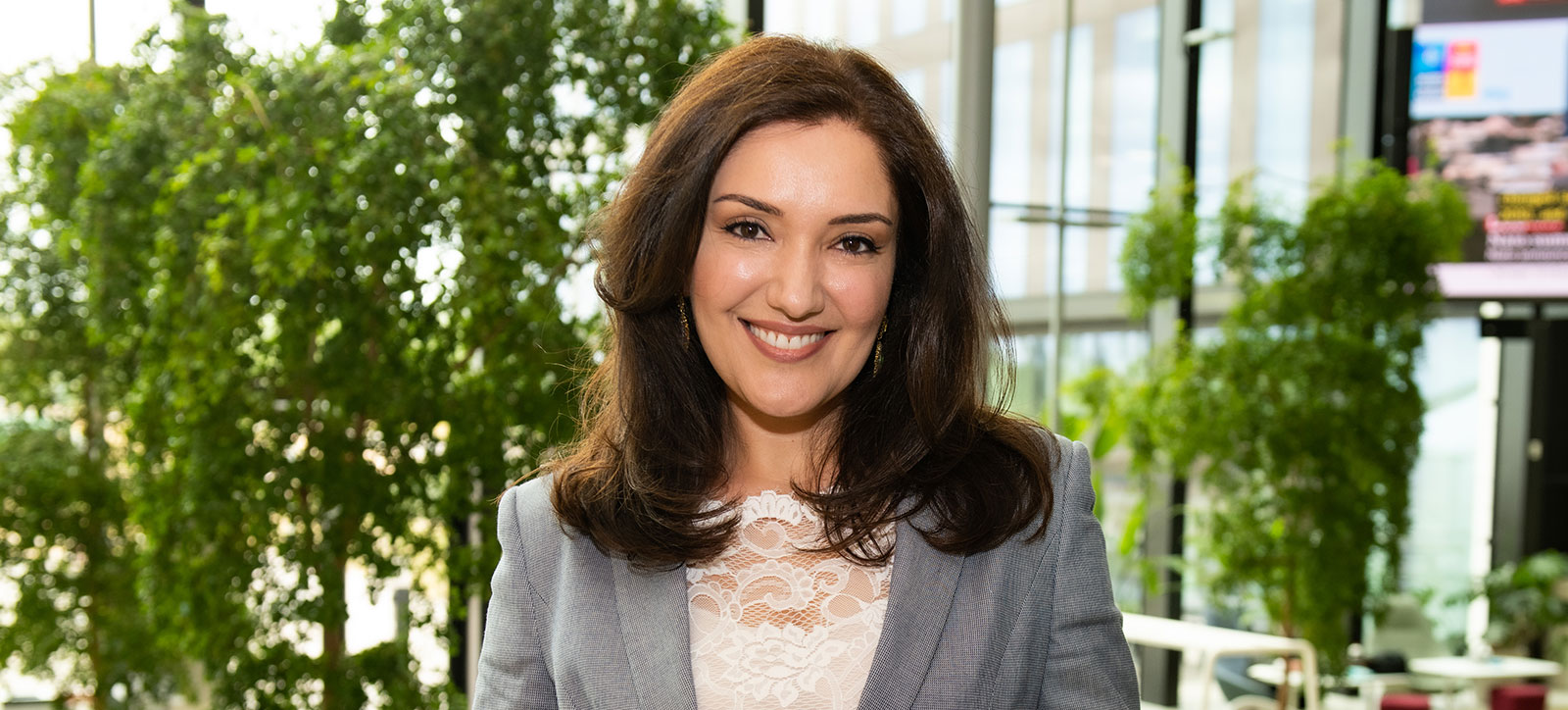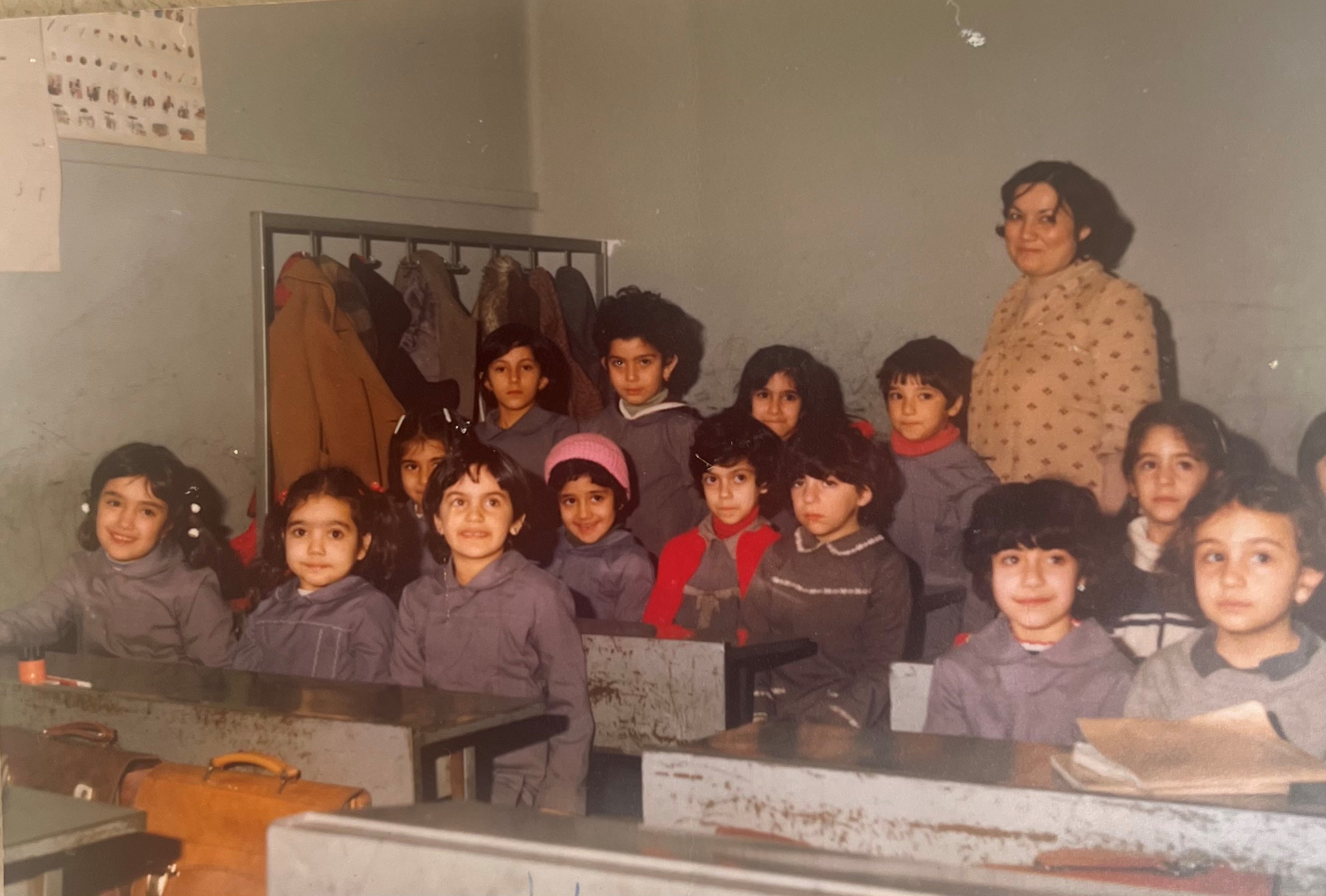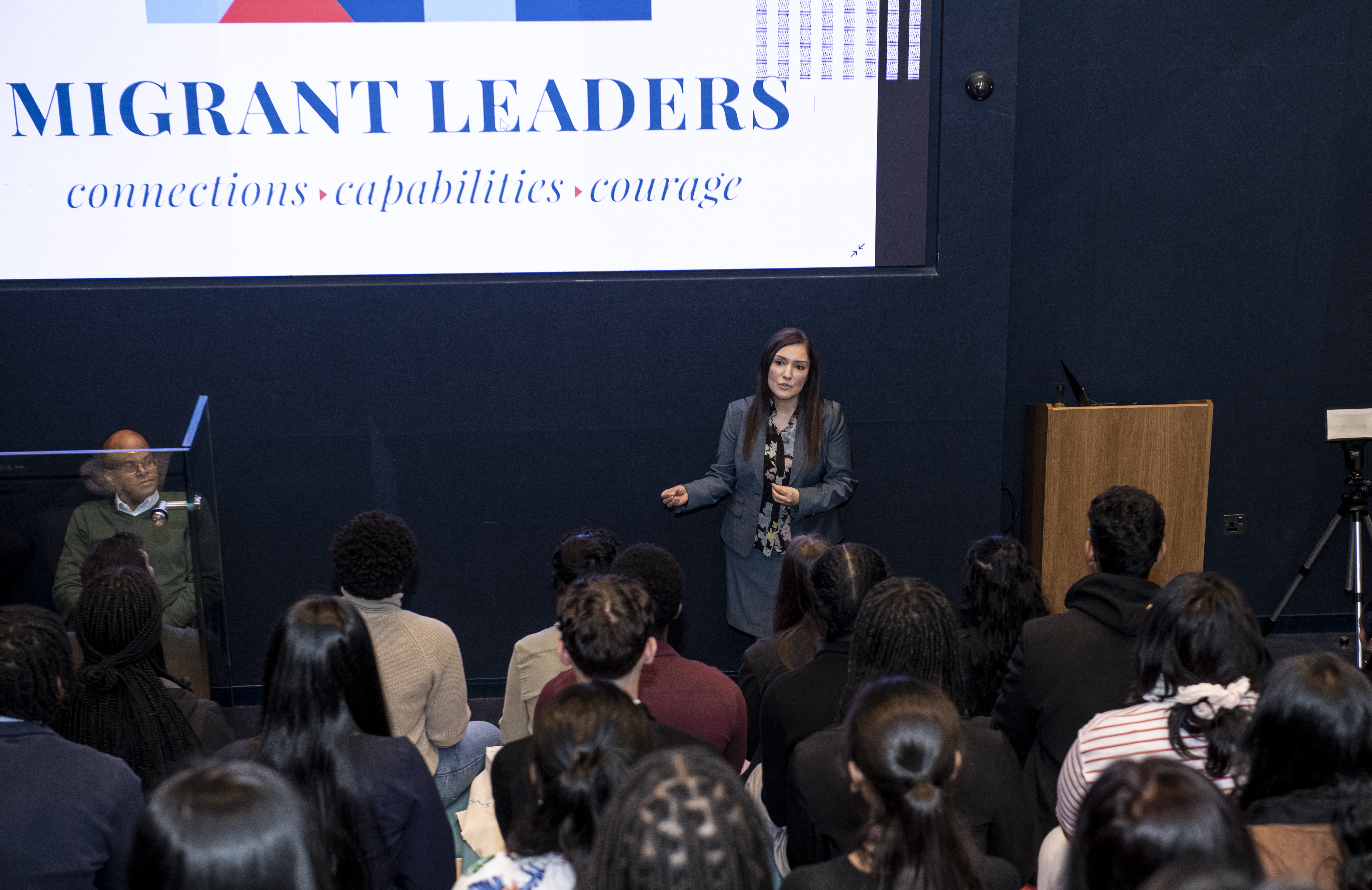
Leading change: Elham Fardad is aiming to bring diversity to UK boardrooms with her charity Migrant Leaders
Fortunately for the thousands of young migrants who have benefited from her charity, Elham Fardad is not the kind of person who will take no for an answer.
As a teen migrant, she was initially denied home student status for university and faced prohibitively high fees. She had arrived in the UK five years earlier in 1986 after her family fled a turbulent life in Iran, where war with Iraq was raging.
Birmingham was her first home, a refuge from the constant bombing, but her education was patchy – she changed school three times in as many years.
Her parents went on to separate and she took on the mental load that typically falls upon an oldest migrant child – to get a good education, a job, and provide for the family.
But without the 10 years required for UK citizenship, higher education appeared out of reach.
After camping outside Birmingham City Council offices for three days, an employee took pity on her.
“I would have stayed a month – it was the only chance I had,” she says.

Deploying her newly gained grasp of A level economics, she explained to bemused officials why an education and a professional career would ultimately benefit the country.
She was bright, numerate, and eager to learn. She had already saved up some cash from teaching maths – a passion of hers – and selling perfumes door-to-door, at which she excelled.
They relented and Elham went on to study accountancy and finance. Within three years of graduating, she had progressed to become a financial controller at GE, the giant US conglomerate.
Ambitious and undeterred, she resorted to a similar approach when Warwick Business School turned down her application for an Executive MBA, believing her at 25 to be too young and inexperienced.
“Which was absolutely right,” says Elham. “I had excellent finance experience, but I was missing knowledge of business and management. That’s why I wanted to hang out and learn from older students.”
She requested a chat with the admissions department, and after a 90-minute conversation an academic congratulated her on becoming the School’s youngest ever student on the Executive MBA, where the average age is 33. “I wanted to hug him, but I knew that wasn’t appropriate.”

It’s not a surprise then that she has been able to persuade an army of mentors from her professional network and beyond to sign up and support young migrants across the country.
This is for a programme run by her charity Migrant Leaders, which she felt compelled to start after coming across the 2017 Parker Review, which revealed the scarcity of people from ethnic minorities in senior positions in UK businesses.
Just two per cent of board members came from ethnic backgrounds compared to 14 per cent of the wider population, the report revealed.
“And if you exclude non-executive directors in that two per cent, the figure would fall dramatically,” says Elham.
When she analysed the data herself, she discovered that ethnic first-generation migrants made up just 1.3 per cent of boardrooms.
“And all of these – apart from one person – were privately educated,” she says. “And so, the targets set by the Parker Review spurred me on.”
Putting the Parker Review into action
She had been ready to find a reason to act. Although with 23 years at prestigious firms behind her, and a senior manager at financial services giant EY, she had an uneasy sense she had abandoned her Birmingham roots and the people she had grown up with.
Elham says: “I felt dissatisfaction in my heart at that time, I felt part of me was missing. The review energised me – the data was so stark, and it was so wrong. I realised it was not just an ethnic problem; it was a migrant problem too.”
Barriers faced by young migrants are immense – language, economic, emotional – she says, and these don’t stop at school.
“I still remember that feeling when I walked into the building on the first day of my graduate job,” says Elham. “My heart rate soared because I felt so out of place. I’d had to learn how to present myself in the corporate world.”
Young migrants are still signing up in their hundreds to the charity’s programme, which offers long lasting support of up to five years.
Most applicants are sixth formers, who are guided through university or degree apprenticeships and into their first graduate job, with a mix of mentoring, training, events, work experience and networking. This aims to help make their face ‘fit’ in professional life.
Some 14 per cent of mentees come from white British disadvantaged backgrounds because they are eligible for support according to Migrant Leaders’ criteria.
“It felt right to include them,” says Elham, who picked up a WBS Alumni Award for her pioneering work.
To date almost 3,000 young people have been mentored by more than 1,600 professionals from 95 FTSE 100 firms and other major organisations. If the charity continues to expand, it will have 3,500 young people on its books by the end of 2024. To Elham, this is success way beyond her original vision, with her aim now to reach some 10,000 young migrants.
Her success is a win for the UK economy, says Elham – migrants mostly come with ambition and drive, and education is often deeply ingrained in their culture, she says.
But while second generation ethnic groups are more likely to gain degrees than their white British counterparts – that is according to the Institute for Fiscal Studies (IFS) Deaton Review 2021 – they don’t do as well at work.
They are less likely to be employed or to gain managerial or professional roles, the IFS research shows.
“And that is such a waste for the country, as well as for them,” says Elham. “People come here to succeed – their families tell them that’s the way they will get out of poverty. They often come from countries where education is highly prized.”
Elham has brought a typical rigorous professionalism to the charity’s work, introducing technology to streamline and enrich young people’s progress through the programme, while every applicant’s right to qualify is double checked.
With her love of data, she has even compiled some 52 characteristics that combined make for a model of the perfect leader.
Why migrants can be a benefit for the UK
Elham can’t resist mentoring individuals in person although she limits herself to 10 mentees. She is efficient – often fitting in three hours of work before her family wakes.
Soon after founding Migrant Leaders, she gave up her job at EY to concentrate on leading the charity and raising her two children, and she has just waved off her eldest to university in London to study maths.
Anti-immigration rhetoric that has gripped UK politics misses the point, she believes.
“Migrants are net contributors to the UK economy,” says Elham.
But they are convenient scapegoats, she believes, amid the cost-of-living crisis, a strategic failure to develop the UK’s strengths in engineering and technology and a reliance on low value labour and zero hours contracts.
She adds: “The country is disenchanted and it’s easy to point the finger at migrants.”
Helping migrants realise their potential, make more of their cultural capital and become part of the professional workforce is the ultimate aim of Elham’s charity.
“And I want us to be prosperous together” she says. “I wholeheartedly believe if we help migrant families achieve what they came here for, which is to better their lives, it will help the British economy and generate new industries, new jobs. My message to the British people is ‘let us serve this country we owe so much to’.”
Find out about more of our Change Makers at Warwick Business School.




 X
X Facebook
Facebook LinkedIn
LinkedIn YouTube
YouTube Instagram
Instagram Tiktok
Tiktok